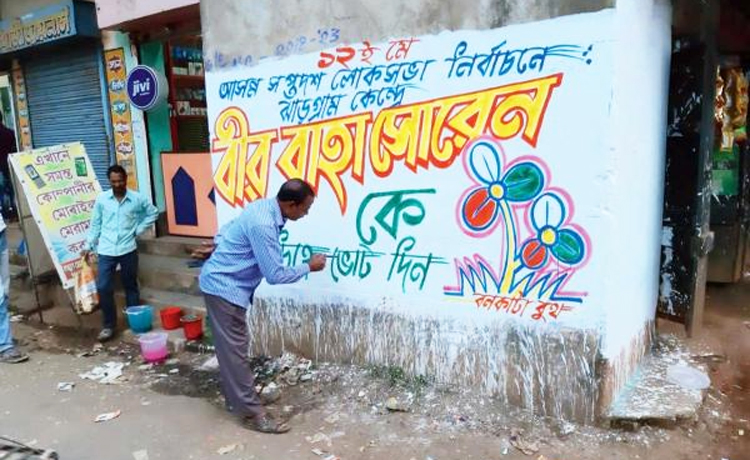An initial assessment has attributed Trinamul’s debacle in Jhargram to an error of judgement in the candidate’s selection, the state government’s possible failure to reach out to villages with development schemes and a glimmer of hope among tribals for rights to jal, jungle and jameen from the Centre.
Members of the Bharat Jakat Majhi Pargana Mahal, the largest body of the tribals who claim to be a “social organisation” had vehemently opposed Trinamul’s choice of Birbaha Soren as the candidate.
Several tribal leaders said Birbaha’s candidature brought back memories of her husband Robin Tudu’s protests against granting Scheduled Caste status to the Kurmi community.
While Robin insisted that Birbaha was a consensus choice, not many agreed. Tribal leaders felt Birbaha’s choice was a clear attempt at slapping a political name to the Majhi Pargana Mahal that took pride in being an “a-political body” for years.
Observers say what made it even more difficult for Trinamul was villagers’ inability to gain benefits from different programmes launched by the state government. An alleged nexus between Trinamul leaders and contractors taking up different projects like “Amar Baari” scheme — houses for the poor — or laying pipelines for drinking water and constructing concrete roads in the interiors of villages had left many waiting for years to reap benefits.
In the interiors of villages across the Jungle Mahal, the people complained about lack of teachers for Santhali students. Also, no textbooks were printed in Alichiki for tribal students.
“Students appeared for Class X board exams without text books and teachers,” said Suren Mahato, a resident of Gopiballavpur.
Finally, a large section of Kurmis — they comprise 42 per cent of the population in the Jungle Mahal — saw hope in the BJP helping them find adivasi right to jal, jungle and jameen.
“We will discuss all these issues at the review meeting with Mamata Banerjee tomorrow,” said a senior Trinamul leader in Calcutta.











